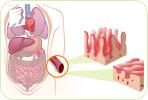Fatigue is more than just a feeling of drowsiness; it is characterized by extreme physical and mental tiredness that's lifestyle-impeding and draining. Fatigue during menopause may be the result of a number of factors, including hormonal imbalances affecting sleeping patterns, other menopause symptoms (e.g., night sweats or anxiety) keeping her awake, or habits and dietary factors impacting her sleep cycle. Along with the appropriate medication if necessary, a regular daily routine can help to bust fatigue.
Early Morning - Wake up
Waking up at the same time every morning helps to establish a regular sleeping cycle, minimizing the likelihood of fatigue.
Later in the Morning - Eat Breakfast
Making time for breakfast is essential in providing the body with energy to use throughout the day. Breakfast also supplies the brain with glucose to maximize mental alertness. Eating whole grain cereal will fill you up and release energy slowly throughout the morning to prevent tiredness. It's also a good idea to incorporate fruits and vegetables into your meals.
Mid-morning - Drink Water and Have a Snack
Fatigue can often be confused with dehydration. Make sure you have drunk enough water and boost your metabolism with a mid-morning snack, like a low-fat yogurt.
Afternoon - Eat Lunch
Many people experience an energy slump after lunch. Avoid this by eating a combination of fiber and protein at lunchtime, like a tuna sandwich on whole grain bread. The whole grains will give you physical energy for the afternoon, and the amino acids in proteins enable the brain to synthesize the neurotransmitters dopamine and norepinephrine, which will keep the mind attentive and alert.
Mid-afternoon - Drink Water and Have a Snack
Eating every three to four hours keeps the body fueled and energized to prevent slumps or waning concentration levels. Have a piece of fruit with a glass of water for an afternoon boost.
Later Afternoon or Early Evening - Exercise
Spend at least 30 minutes exercising each day, even if this simply means taking a brisk walk outside. While this uses fuel in the body, exercise is important, energizing in the long-run, and will help achieve restful sleep later in the evening.
Evening - Eat Dinner
Avoid consuming stimulating foods and beverages - such as alcohol or caffeine - in the evening, as these interfere with restful sleep. Try not to overeat at dinnertime, as this could interfere with the depth of your sleep later; wait 15 minutes after finishing your meal before reaching for seconds, because this is the amount of time it takes for the brain to recognize the feeling of fullness after eating.
Later in the Evening - Unwind
Stress is a major cause of insomnia and other sleep disturbances. Take time to unwind, whatever this means to you. Yoga, meditation, reading a book, or taking a bath could all help with minimizing stress and achieving a relaxed state. Avoid staring at screens, such as laptops or televisions, within an hour of going to bed.
Later at night- Time for Bed
Try and go to bed at the same time every night to promote a regular sleeping pattern. Have a cold glass of water next to your bed in case you feel dehydrated in the night, and sleep in a cool, dark room to promote restful, uninterrupted sleep.
Your daily plan should allow you to work, socialize, and lead a healthy life without exasperating fatigue. This is because combating fatigue does not mean you have to reduce your commitments; it simply means following a healthy diet plan with exercise and relaxation time - habits which are likely to offer numerous other benefits.
Sources
- The North American Menopause Society (NAMS). (2015, February 4). Link between early menopause, chronic fatigue syndrome discovered. ScienceDaily. Retrieved October 15, 2015 from www.sciencedaily.com/releases/2015/02/150204075324.htm
- National Institute on Aging. (2015). A Good Night's Sleep. Retrieved October 15, 2015, from https://www.nia.nih.gov/health/publication/good-nights-sleep
- Better Health Channel. (2011). Fatigue fighting tips. Retrieved March 31, 2014, from http://www.betterhealth.vic.gov.au/bhcv2/bhcarticles.nsf/pages/Fatigue_fighting_tips
- National Health Service. (2013). Self-help tips to fight fatigue. Retrieved March 31, 2014, from http://www.nhs.uk/Livewell/tiredness-and-fatigue/Pages/self-help-energy-tips.aspx
- National Institutes of Health. (2013). Fatigue: MedlinePlus Medical Encyclopedia. Retrieved March 31, 2014, from http://www.nlm.nih.gov/medlineplus/ency/article/003088.htm
- Office on Women's Health. (2010). Menopause and mental health. Retrieved March 31, 2014, from http://womenshealth.gov/menopause/menopause-mental-health/




